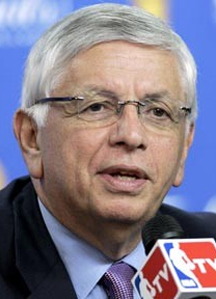NEW YORK, (Reuters) – National Basketball Association (NBA) players and owners ratified a new collective bargaining agreement yesterday, formally ending a five-month lockout and ensuring the season will start on Christmas Day.
Both sides voted in favor of a 10-year-deal that will allow a shortened 66-game season to start Dec. 25 with five games. Free agency and training camps will open today.
“I am pleased to announce that we have concluded the collective bargaining process and have reached an agreement that addresses many significant issues that were challenges to our league,” NBA Commissioner David Stern said in a statement.

“This collective bargaining agreement will help us move toward a better business model, a more competitive league and better alignment between compensation and performance.”
The NBA season was in jeopardy after talks between the two sides collapsed in June, triggering the lockout and tit-for-tat anti-trust legal action.
The pre-season and first six weeks of the NBA’s regular season, in which teams normally play 82 games, were cancelled before owners and players agreed last month to a compromise deal after both sides lost millions of dollars.
The players began voting on the deal Wednesday, even though some of the final details were not sorted out until just before Thursday’s vote by owners.
Although the new deal was for 10 years, the league and the players’ union retained an option to opt out after six years.
Under the terms of the deal, players and owners agreed to a 50-50 split of basketball related income, one of the major sticking points of the dispute.
The NBA board of governors said the new revenue sharing plan would quadruple the funds previously shared among NBA teams.
“The board realized that it was imperative that our revenue sharing program be improved,” Stern said. “We have found a solution that should provide our league with better competitive balance.”
The sides also agreed to new tax rates and to set the salary cap for the 2011-12 season at $58 million.
The maximum length of player contracts was reduced by one year to five years for a team’s own players, while salaries for new player contracts may increase by up to 7.5 per cent per year.
They also reached an agreement to bolster the doping program with the introduction of offseason testing, increased penalties for violations involving performance-enhancing drugs, and blood testing for human growth hormone once a test was validated.
